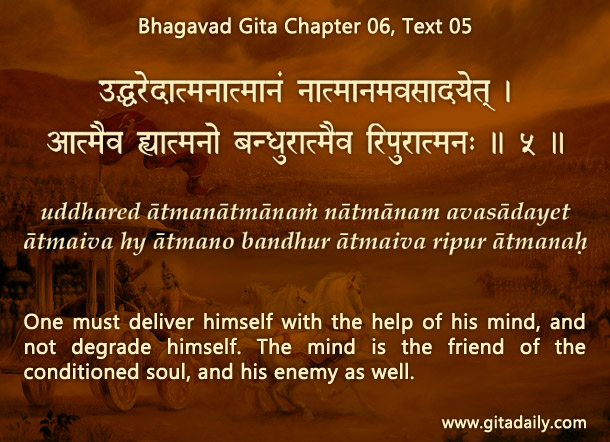“Live in the present” is valuable advice to counter our mind’s tendency to wander off into the past or the future. That wandering can rob us of opportunities available in the present to do something constructive.
But what if the present is boring, without any worthwhile opportunities? Suppose we are driving on a congested road, moving at a pace that would make a snail seem like a racing champion. What can we do by living in the present? Notice how various cars are (not) moving and how various people are reacting? Even if we learn something by such observation and even if our mind doesn’t go crazy, is that the best use of our time? Wouldn’t our time be better used by transcending our present? How? By thinking about something uplifting. Or more practically, by providing ourselves with some uplifting thought-resource such as wisdom audiobooks or spiritual music.
And what if the present is worse than boring — it is distressing? Suppose we get a painful disease that has no known cure. And we are waiting for palliative treatment in a crowded, noisy hospital ward. If we force ourselves to live in the present, we will add mental misery to our physical misery.
Then should we become blind to the present? No, we need to be sufficiently aware of the present to do whatever constructive things we can.
Recommending such pragmatic balance between obsession with the present and oblivion about the present, the Bhagavad-gita (06.05) urges us to engage with our mind in a way that uplifts.
One-sentence summary:
Living in the present helps when it enables us to better tap the opportunities of the present, but it harms when it locks us in a boring or distressing present bereft of opportunities to transcend the present.
Think it over:
- When is living in the present helpful?
- When is living in the present unhelpful?
- Look at your daily routine and list three situations each where you can better engage with the present and where you can better transcend the present.
***
06.05: One must deliver himself with the help of his mind, and not degrade himself. The mind is the friend of the conditioned soul, and his enemy as well.


Hare Krishna Hare Krishna
Krishna Krishna Hare Hare
Hare Rama Hare Rama
Rama Rama Hare Hare
This is so good! And so helpful. Your writing is so on point, timely, and life-saving. Hare Krishna and God bless you. 🙏🏽
Thanks for your kind words; happy to be of service.
Nice ,please keep it up .